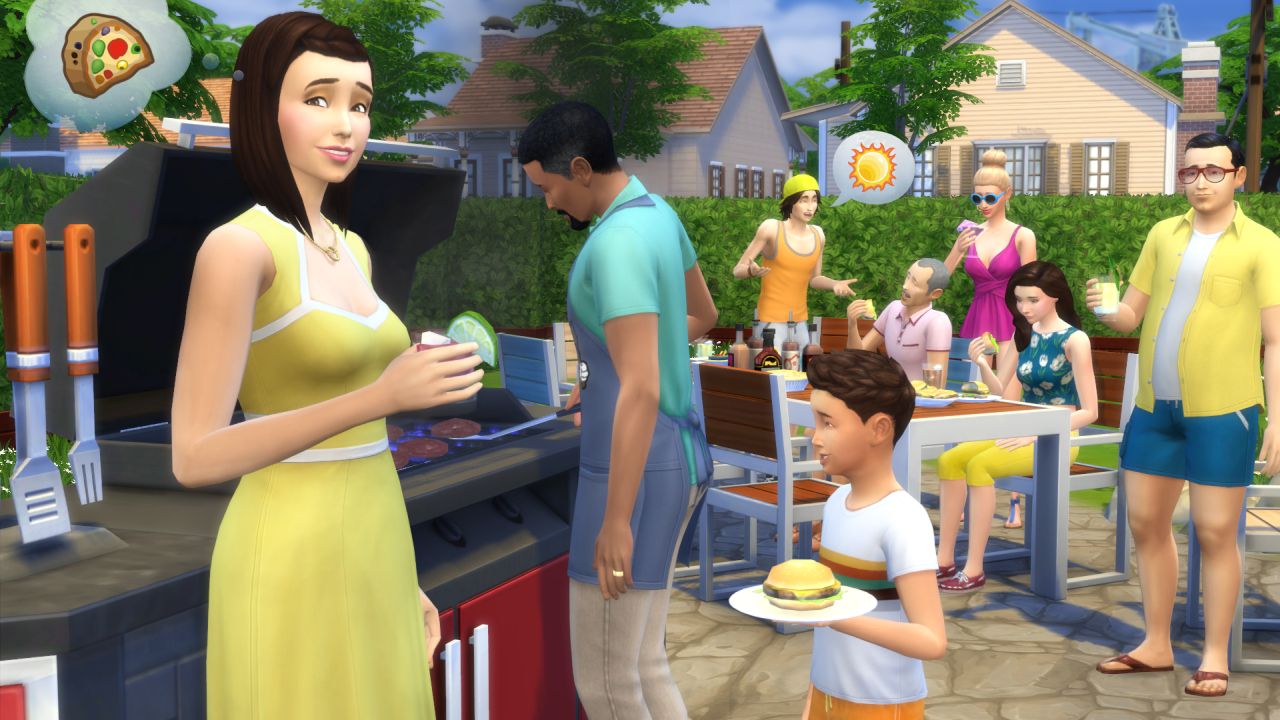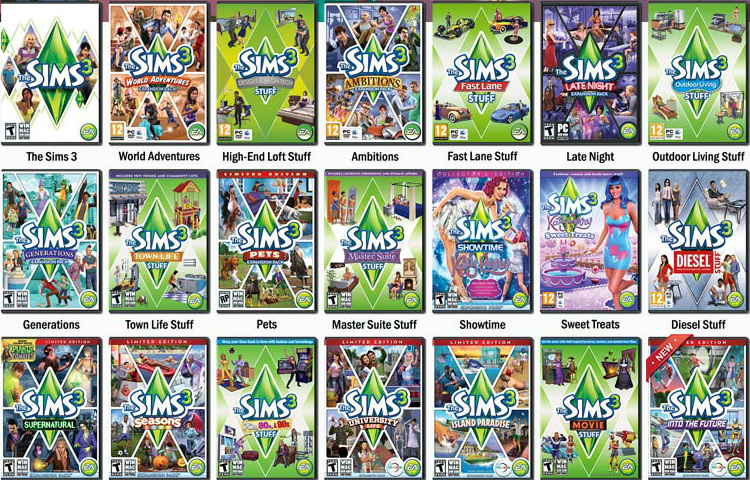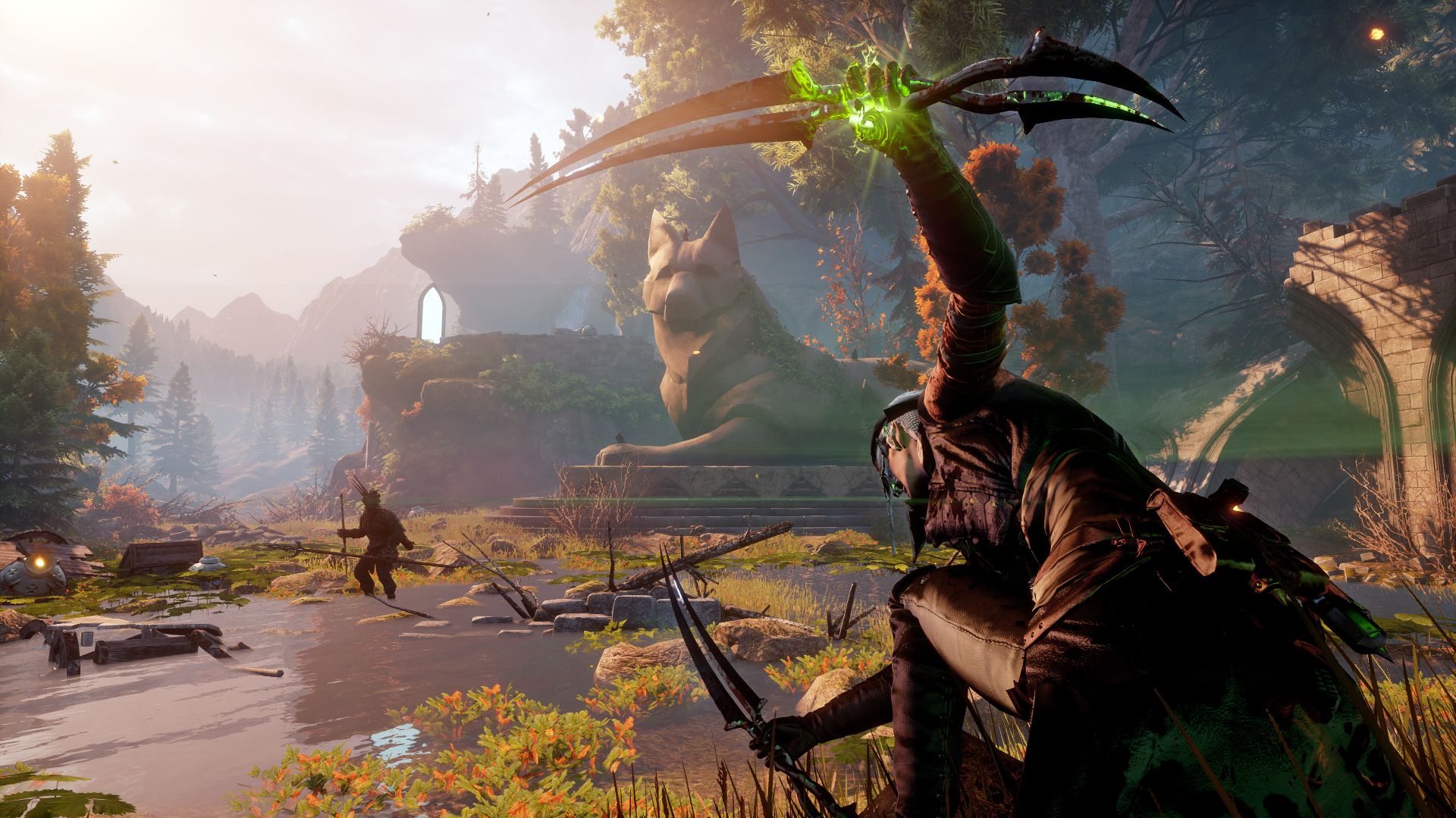Hating specific developers and publishers seems to be a bit of an obsession for gamers. People hated Sean Murray for being dishonest regarding No Man’s Sky, Warner for not having its priorities right, and EA for being a greedy cash grab. The latter has had a particularly hard time. This is mostly due to their high prices, strong DLC culture, and having products fun enough that (despite the backlash) consumers buy anyway.
Recently, the industry got a fresh reminder of just how evil the company is when EA announced that Visceral Games (responsible for Dead Space) would be shut down. The Star Wars title the studio had been working on was moved to another studio before receiving a complete overhaul. In a world of absolutes, it’s clear that EA is the bad guy of the industry. But, what if they’re not just a bunch of greedy jerks. Maybe their intention is not to ruin the party, but rather do what they can to stay afloat in a fickle industry with a history of turmoil.

“Wait a minute,” you shout at your screen. “Are you trying to say EA isn’t the destroyer of worlds and eater of dreams we’ve all made it out to be?” To which I say, yes, perhaps.
Though they’ve made dubious decisions, shut down a number of promising studios, and perpetuated unlikable business trends, the company isn’t inherently evil. It’s not as if EA is funneling its money towards the creation of a new Death Star—no pun intended. Despite EA’s growing collection of bad decisions, they’re also responsible for genre-defining games such as The Sims and Mass Effect.

Sure, we could argue that their games could’ve easily come from a different company. Maybe even an aspiring indie studio, but it’s easy for us to say that in an era where the tales of indie developers finding success are plentiful. Smaller companies and developers aren’t necessarily virgin saints, but nobody wants to be accused of punching down. It’s easier to point fingers at the big guy knowing that a little bad publicity won’t really hurt them.
Wolf in Sheep’s Clothing
EA has been accused of many terrible things, not the least of which is destroying popular franchises for the sake of appealing to a broader audience. A decision frequently made in the industry in order to profit as much as possible. They have also shut down numerous studios before Visceral and forced microtransactions and season passes in many other games that didn’t need them. The best example of their vileness is what’s become of the The Sims franchise. Anyone familiar with the title knows that expansion packs are part of the life simulator’s appeal. Generally, these expansions serve to expand the base game.

It all started with the first The Sims, which had seven expansion packs that kept on improving an already unique title. Adding new features instead of jumping right into a sequel made sense given how quirky and experimental the game was. Though the life simulation genre wasn’t new, no one had done it quite like Maxis back in 2000.
Four years later, The Sims 2 was released. The new game greatly improved upon its predecessor’s premise with modern graphics, full camera freedom, and additional focus on fan-made content and customization. Expansions continued to be a hallmark of the franchise. Many of which where simply updated versions of those released for the first game. This was easy to forgive as the engine and graphics had changed so dramatically. After such a drastic change even the old felt new again.
Holding onto the Past
Flash forward a few years. Rather than continuing to test boundaries, The Sims 4 felt like a step back to the past. Gone were the expanded freedoms of the third iteration. Now players were forced back into structured neighborhoods and locked house lots. There were some improvement made to the tools provided for architecture and decoration. However, content-wise the game was lackluster.
The problem was that even after three major installments, none of the expansion material had ever made it into the base game. Instead of providing popular features such as pets and apartments, EA decided to piecemeal those out to fans through paid expansions. This quickly made The Sims quite an expensive hobby. To purchase the complete experience for The Sims 3 would cost more than $200 on Steam. This includes each one of the $19.99 expansions.

So why would EA charge more than $200 for a game if they didn’t have a mountain hideout, trained goons, and a fluffy white cat? Development costs and whatever beef EA has with Valve aside, it sounds pretty unforgivable.
Lamb in Wolf’s Clothing
Electronic Arts’ shady dealings aren’t limited to The Sims franchise. Who could forget Dead Space 3’s forced co-op and selling in-game items for real money? Or Burnout Paradise and its shameful DLCs? Even the underrated, Kingdoms of Amalur, offers a “weapons and armor bundle” DLC, containing three sets of quickly outclassed gear.
To anyone who doesn’t wipe their bum with four layers of Egyptian silk, it’s obvious that EA doesn’t value their playerbase. If their “Player First” statement were truly honest, they wouldn’t constantly sneak in manipulative design to incentivize in-game purchases.
However discouraging their business practices are, EA is first and foremost a business ruled by people. People who have an almost primal desire to survive against all odds. Sure, these people might be a bunch of fat executives high on brioche, but their goals are not so different from the rest of ours.

Shivering Despite the Thick Furs
Most people aspire to live the dream of a big house, in a nice neighborhood, with at least two cars resting in the driveway. They want to travel the world, visit exciting places, and dine at one of those fancy restaurants everyone talks about, but no one’s actually been to. Living a more bohemian lifestyle is often regarded as a phase. If you aren’t constantly striving for more, people think there is something wrong with you. On the downside, to really achieve such goals, sometimes you may have to do things you aren’t particularly proud of.

It’s easy to point at someone in power and list all the horrible things they’ve done to get there. It’s a little more difficult to see things from their perspective and realize that all that time they were just trying to stay afloat. Whether they’re adhering to social standards or covering their tracks, these executives do whatever they must to maintain the lifestyle everyone below them dreams of. If wishing for a penthouse in New York and a summer home in Tuscany makes a person evil then I’d argue that there’s a little devil inside everyone. Constantly tempting them to do whatever is necessary to rise.
Reasonable Understanding
While it’s true that the industry giants have to make changes in order to be consumer-friendly gamers also have a part to play. For starters, decrying EA as the devil and blaming them for everything that’s wrong with video games isn’t actually helpful. After all, they’re only trying their best to remain successful. On the other hand, mentioning discontent and discussing what could change while offering solutions can go a long way. We don’t have to be okay with constant loot boxes and season passes. As consumers, we should still try to meet companies halfway. To enact change, we need to stop supporting what we think is wrong and start suggesting solutions.
Gabriel Cavalcanti
Latest posts by Gabriel Cavalcanti (see all)
- Sympathy for the Devil: What if EA isn’t Evil? - December 8, 2017
